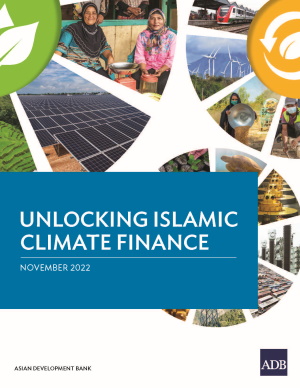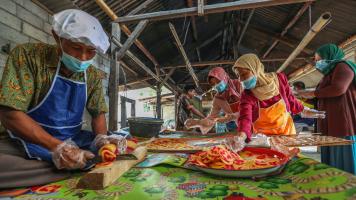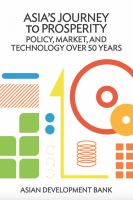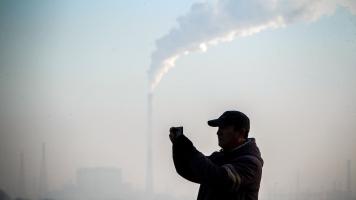Unlocking Islamic Climate Finance
This report analyzes how Islamic finance can be scaled up to help build urgently needed climate-resilient infrastructure in the Asia and the Pacific, and ensure its post-COVID-19 recovery is green, sustainable, and inclusive.
Islamic finance holds great potential to support post-COVID-19 recovery in the Asia and the Pacific, and mobilize climate finance in line with the Paris agenda, with the industry having grown to almost $3 trillion globally.
Since its inception in the 1970s, the Islamic financial services industry has become highly concentrated in a few jurisdictions that have developed both the institutional infrastructure and the domestic demand for Islamic finance products and services. Among member countries of the Asian Development Bank (ADB), Islamic finance is reported to attract a significant market share (more than 15%) of domestic banking sector assets in only four countries (Bangladesh, Brunei Darussalam, Malaysia, and Pakistan), and together with Indonesia, they concentrate today more than 98% of the $750 billion Islamic finance assets under management reported across ADB members.
This report outlines how greening Islamic capital markets and social finance, mobilizing project finance for infrastructure and boosting financial inclusion, can play a key role in funding the climate agenda. It details the 14 ADB developing member countries with majority Muslim populations, assesses the growth of the nearly $3 trillion global Islamic finance market, and explores how its faith-based principles support the transition to a green agenda.
Contents
- Executive Summary
- Introduction
- Islamic Climate Finance: A Nascent Industry in a Double-Bind
- Alternative Pathways to Unlock the Potential of Islamic Climate Finance
- Implementation Strategies
- Conclusion
Published November 2023.



